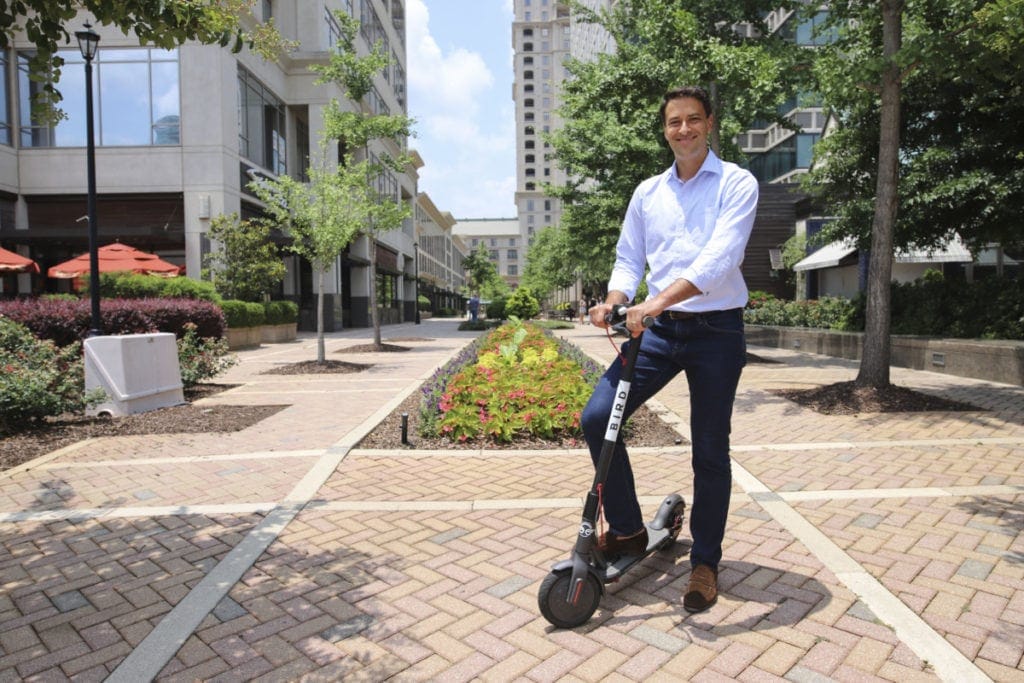It’s a bird! It’s a plane! …wait, you were right the first time, it’s a bird, a Bird Scooter!
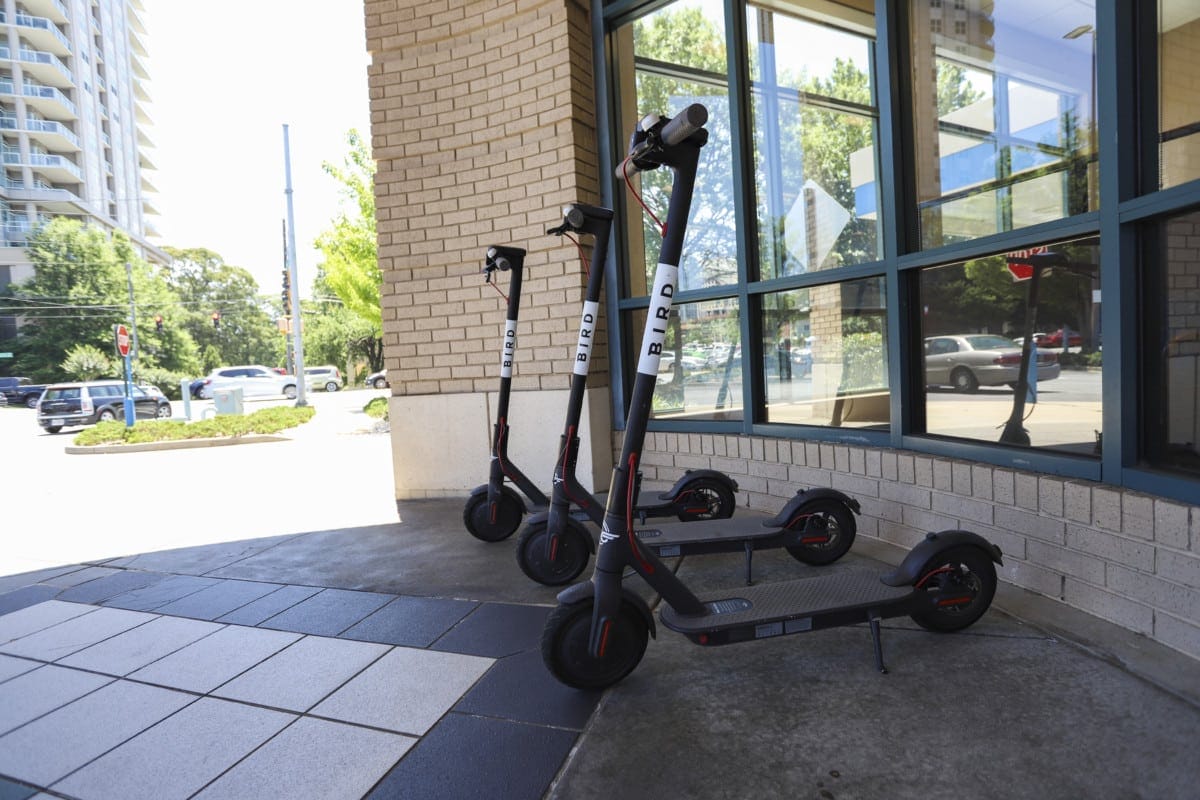
Have you seen these little electric scooters popping up all around Buckhead? They are the newest ride share option in the city, offering a fleet of sleek scooters that are accessible via smartphone app. It’s an easy process to rent one for yourself – all you have to do is find a scooter (the app comes with a map that makes this part easier), enter in your credit card and driver’s license information, and you can rent the scooters for $1 to begin a session and $0.15 for every minute that follows.

The scooters can reach a maximum speed of 15 miles per hour, and typically can run for about 15 miles on a single charge. You can rent them between the hours of 7am and 8pm, when they are picked up and returned to an aptly-named “nest” where they picked up to be charged, repaired, and stored until being dropped off at the nests again in the morning. You can even become a Charger and collect up to 20 Birds per night and bring them home to charge, for which the company will pay you $5 per scooter earning a Charger up to $100 per night.
Bird was the first company in the world to offer a dockless electric last-mile solution, officially launching in September of 2017. By eradicating the need to return these scooters to specific locations, it has opened up a new level of flexibility for customers. You can find one nearby, rent it and scoot to wherever you’re trying to go, then simply park it outside (preferably off of the sidewalk and in a bike parking area) and leave it there for the next rider to find.
Since its launch Bird riders have logged more than a million rides, and the service has spread to Austin, Charlotte, Nashville, Los Angeles, Miami, Santa Monica, San Diego, San Francisco, San Jose, Scottsdale, Tempe, and Washington, DC. The Bird headquarters are in Venice, California and they have seen a massive uptick in new cities in recent months.
The company’s goal is to provide an accessible and environmentally-friendly alternative to driving for short trips, and hope to replace cars for the 40% of car rides that are less than 2 miles long. Bird was founded by Travis VanderZanden who grew up with a single mother who drove a public bus in Appleton, WI, and he has been actively seeking innovative transportation solutions ever since. VanderZanden later went on to become to first COO of Lyft and a senior executive at Uber before flying the coop and starting Bird.
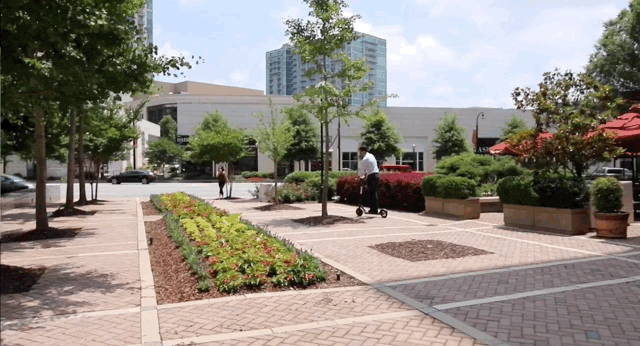
These scooters are admittedly quite fun to ride, and they can economically provide an alternative to both walking and driving short distances, but there are many regulations and rules that come along with operating these new machines.
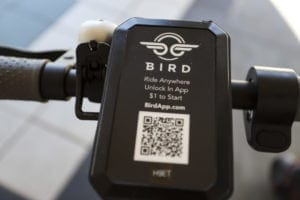
For one thing, all riders must be older than 18 with a valid driver’s license, and they must also consent to a safety agreement and watch an in-app safety tutorial. Printed on the scooters it says you must wear a helmet, which Bird says they will provide for free if you select it within the app. Riders have reported that while the helmets are free, they cost $1 to ship and have to be sent to you in the mail, so there is no instant solution while you’re actively riding.
The company has sought to mitigate strain on the cities where Bird has been instituted by committing to a “Save Our Sidewalks” pledge which requires a daily pickup of the scooters each night and repositioned efficiently throughout the city the following day. They also have committed to curbing unnecessary expansion of the fleets within cities, allowing for an increase in scooters only when the existing Birds are used more than 3 times per day. Underutilized scooters would also be removed, and the company shares these figures and tracking data with the cities where they operate to allow for full transparency. Lastly, they offer $1 per vehicle per day to the city government where they are located to assist in the building of new bike lanes, promote safe riding, and maintaining a shared infrastructure with other vehicles and ride-share programs.
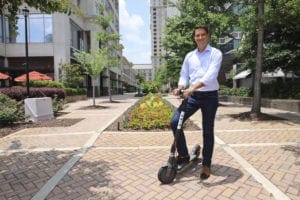
One key point that it would appear has not been adequately promoted to the public is that these scooters are intended to be ridden in bike lanes and on the street, and are expressly not allowed on public sidewalks. In places where the route might take a rider through a public park, for example, the app suggest alternate routes. However, despite these precautions, residents may have witnessed these zippy little scooters on sidewalks, driving the wrong way down streets, and putting their riders into legitimate peril in intersections.
Some cities have reacted strongly against Bird scooters, including Nashville where the company was served with a cease and desist letter only a few days after their initial launch. Bird has pledged to work with the cities and find solutions to these issues as they arise, but ultimately, without supervision, people will be people. While most Bird riders will likely follow the laws and operate the scooters responsibly, there are others who will ignore these regulations.
As such, the future for this scooter ride-share program is still uncertain here in Atlanta. Their rapid expansion across the country would appear from the outside to be a massive success, but the question could be posed – are they outgrowing their ability to control the fleet?

